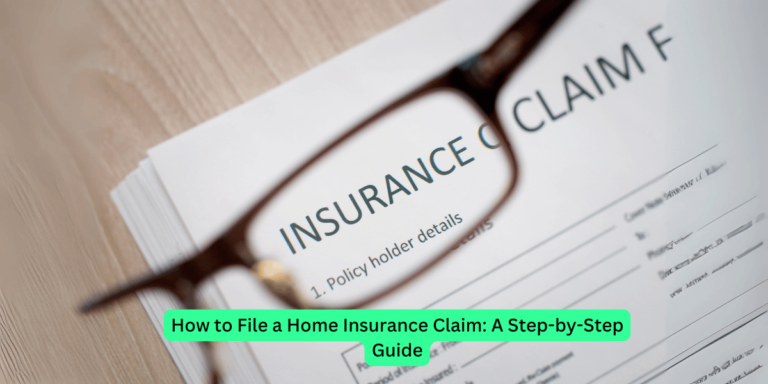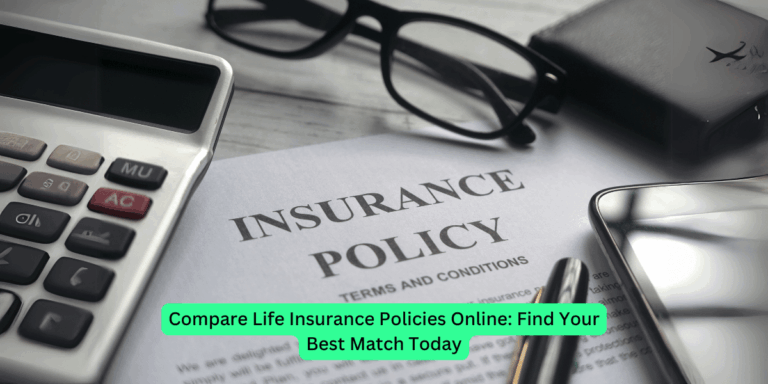Insurance Agents near Me for Consultation: Expert Advice at Your Doorstep
Finding the right insurance agent can be a challenge. You need someone reliable, experienced, and nearby. Insurance agents provide expert advice tailored to your needs. They help you understand complex policies and find the best coverage for your situation. Whether it’s home, health, auto, or life insurance, a good agent can make all the difference. But how do you find the best insurance agents near you?
This guide will help you navigate your options, ensuring you get the consultation you need. Discover tips for selecting the right agent, and learn why local expertise matters. Get ready to make informed decisions about your insurance needs with confidence.
Finding Local Agents
Finding local insurance agents for consultation can be a daunting task. Whether you need health, auto, or home insurance, connecting with a knowledgeable agent nearby is crucial. Local agents can provide personalized advice tailored to your specific needs and community conditions. Let’s explore effective methods to find local agents.
Online Directories
Online directories are a convenient way to find insurance agents near you. These directories compile lists of professionals based on location, specialty, and customer reviews. Here are some popular online directories:
- Yellow Pages: Known for its comprehensive listings, Yellow Pages provides detailed information about local businesses, including insurance agents.
- Google Maps: By searching “insurance agents near me,” Google Maps displays nearby agents with ratings and reviews.
- Yelp: Yelp offers user reviews and ratings, helping you choose agents based on their reputation and service quality.
Using these directories is simple:
- Visit the chosen directory website.
- Enter your location and search for insurance agents.
- Review the listings and read customer reviews.
- Contact agents directly via provided phone numbers or email addresses.
Online directories also offer filters to narrow down your search. You can filter by specialty (auto, health, home), ratings, and distance. This saves time and ensures you find the best match for your needs.
Community Referrals
Community referrals are another effective method to find local insurance agents. Recommendations from friends, family, and neighbors can lead to trustworthy and reliable agents. Here’s how to leverage community referrals:
- Ask Friends and Family: Inquire if they know any reputable insurance agents. Personal experiences can be insightful.
- Join Local Forums: Participate in community forums or social media groups. Ask for agent recommendations and read past discussions.
- Attend Community Events: Local events, such as fairs and business expos, often have booths from insurance agencies. These events provide a chance to meet agents in person.
Community referrals offer several benefits:
| Benefit | Explanation |
|---|---|
| Trustworthiness | Recommendations from people you know can be more reliable than online reviews. |
| Personalized Advice | Local agents understand community-specific needs and conditions. |
| Convenience | Agents referred by acquaintances may offer better service due to established relationships. |
By utilizing community referrals, you can find agents who are well-regarded in your area. This method often leads to a more personalized and trustworthy consultation experience.
Types Of Insurance
Finding the right insurance can be challenging. Insurance agents near you are ready to provide expert consultation. They help you understand the different types of insurance available. Knowing the types of insurance is crucial for making informed decisions. Let’s explore the main categories: health, auto, and home insurance.
Health Insurance
Health insurance is a vital part of financial planning. It covers medical expenses and can protect you from high costs due to illness or injury. Here’s what you need to know:
- Coverage: Includes hospital stays, doctor visits, and prescriptions.
- Types:
- Individual plans
- Family plans
- Employer-provided plans
- Benefits: Access to preventive care and emergency services.
Many insurance agents specialize in health plans. They can guide you through policy options. Understanding premiums, deductibles, and out-of-pocket costs is essential. Agents simplify these complex details. They ensure you choose a plan that fits your needs and budget.
Auto Insurance
Auto insurance protects you and your vehicle. It covers damage, theft, and liability. Here’s a breakdown:
- Basic Coverage: Liability for accidents, collision, and comprehensive.
- Optional Coverage:
- Roadside assistance
- Rental reimbursement
- Gap insurance
- Discounts: Safe driver, multi-car, and student discounts.
Agents can help you find the right auto insurance. They compare policies to get the best rates. They ensure you meet legal requirements. Professional advice keeps you protected on the road. Explore your options and drive with peace of mind.
Home Insurance
Home insurance safeguards your property. It covers damage from disasters, theft, and liability. Important aspects include:
- Coverage: Protects your home and personal belongings.
- Types:
- Basic homeowners insurance
- Condo insurance
- Renters insurance
- Factors: Location, home value, and construction type.
Insurance agents assess your home’s needs. They offer tailored policies. They explain coverage limits and exclusions. Their expertise ensures you have reliable protection. Home insurance gives peace of mind and security. Contact an agent to explore your options today.
Consultation Benefits
Looking for insurance agents near me for consultation can be a smart choice. Finding the right insurance can be tricky. Many options exist, and it is hard to know which one is best. Consulting with an insurance agent can help. They offer many benefits, making the process easier and more effective.
Personalized Advice
One major benefit of consulting with an insurance agent is the personalized advice they provide. Unlike online tools, agents can understand your unique needs. They take the time to know your situation, which helps them suggest the best coverage for you.
Here are some ways personalized advice can help:
- Agents ask about your lifestyle, family, and work.
- They consider your budget and financial goals.
- They help you understand complex insurance terms.
- Agents can recommend coverage that fits you perfectly.
For example, if you have a family, an agent might suggest a policy with strong health benefits. If you own a business, they may recommend business insurance. This personalized touch ensures you get the protection you need, without paying for extras you don’t.
Policy Comparison
Another benefit of consulting with an insurance agent is their ability to compare policies. The insurance market is vast, with many companies offering similar products. It can be overwhelming to sort through all the options on your own.
Insurance agents have access to a wide range of policies. They can compare:
- Coverage limits
- Premium costs
- Deductibles
- Exclusions
- Additional benefits
To illustrate, here is a table showing how an agent might compare two policies for you:
| Feature | Policy A | Policy B |
|---|---|---|
| Coverage Limit | $100,000 | $150,000 |
| Premium | $50/month | $60/month |
| Deductible | $500 | $750 |
| Exclusions | None | Some exclusions |
| Additional Benefits | Roadside Assistance | Travel Insurance |
By comparing policies, agents can help you find the best value. They ensure you get the right amount of coverage at a price you can afford.
Questions To Ask
Finding the right insurance agent near you for consultation is crucial. Asking the right questions can ensure you make an informed choice. Here are key questions to ask.
Experience And Credentials
Understanding the experience and credentials of an insurance agent is essential. These factors determine their ability to provide reliable advice and services. Here are some important questions to consider:
- How many years have you been an insurance agent?
- What types of insurance do you specialize in?
- Do you have any certifications or professional qualifications?
It’s beneficial to choose an agent with significant experience. This often translates to better knowledge of insurance products and industry trends. Ask about their specific areas of expertise. For example, some agents may specialize in health insurance, while others focus on auto or home insurance.
Certifications and professional qualifications are also important. Below is a table outlining some common credentials and what they signify:
| Credential | Significance |
|---|---|
| CPCU (Chartered Property Casualty Underwriter) | Expertise in property and casualty insurance. |
| CLU (Chartered Life Underwriter) | Specialization in life insurance and estate planning. |
| ChFC (Chartered Financial Consultant) | Comprehensive financial planning knowledge. |
Consider these credentials when evaluating potential insurance agents. They indicate a higher level of knowledge and commitment to the profession.
Service Fees
Understanding the service fees charged by insurance agents is crucial. Different agents may have varied fee structures. Here are some questions to ask:
- What are your service fees?
- Do you charge a flat fee or a commission?
- Are there any additional costs I should be aware of?
Knowing the fee structure helps avoid surprises. Some agents charge a flat fee for their services. This fee is fixed and does not change. Others may work on commission. They earn a percentage of the insurance premium you pay.
Below is a comparison of flat fee and commission-based fee structures:
| Fee Type | Description |
|---|---|
| Flat Fee | A fixed charge for consultation and services. |
| Commission | A percentage of the premium paid for the insurance policy. |
Ask if there are any additional costs. These could include charges for specific services or administrative fees. Understanding all potential costs helps you budget more effectively and choose the right agent for your needs.
Making The Right Choice
Finding the right insurance agent near you for a consultation is crucial. The decision you make can impact your financial security and peace of mind. Making the right choice involves considering several factors to ensure you select an agent who meets your needs and expectations.
Agent Compatibility
Choosing an insurance agent is not just about their professional skills. It’s also about how well they align with your needs. Here are some key aspects to consider:
- Communication Style: Do they explain policies in a way that you understand?
- Availability: Are they available when you need them, especially in emergencies?
- Understanding Your Needs: Do they take the time to understand your unique situation?
- Personal Rapport: Do you feel comfortable discussing personal financial matters with them?
Compatibility is crucial because it affects how well the agent can serve you. If the agent’s communication style doesn’t match your preference, you might miss important information. Similarly, an agent who isn’t available when needed can leave you feeling unsupported.
To evaluate compatibility, consider scheduling an initial consultation. During this meeting, pay attention to their listening skills and how they address your concerns. A good agent will ask questions to better understand your needs. They will provide clear and concise answers, ensuring you feel informed and confident in your decisions.
Client Reviews
Client reviews provide valuable insights into an insurance agent’s performance. They reflect the experiences of other clients, helping you gauge the agent’s reliability and effectiveness. Here are some points to consider:
- Overall Ratings: Look for agents with high average ratings.
- Positive Feedback: Pay attention to what clients praise about the agent.
- Negative Feedback: Note any recurring issues or concerns.
- Specific Experiences: Read detailed reviews for in-depth insights.
Client reviews can often be found on the agent’s website, social media pages, or review platforms like Yelp or Google. For a more comprehensive view, consider looking at multiple sources. This helps ensure the feedback is balanced and accurate.
Another useful approach is to ask the agent for references. Speaking directly with current or past clients can provide a firsthand account of their experiences. Ask about the agent’s responsiveness, professionalism, and support during claims. Gathering this information helps you make a well-informed choice.
Frequently Asked Questions
What Is The Difference Between An Insurance Agent And An Insurance Consultant?
An insurance agent sells policies from specific insurers and earns commissions. An insurance consultant provides independent advice and charges fees.
Can An Insurance Agent Charge A Consulting Fee?
Yes, an insurance agent can charge a consulting fee. It depends on the state’s regulations and the agent’s business practices. Always check with your agent.
What Are The Disadvantages Of Using An Insurance Broker?
Insurance brokers may charge fees, increasing costs. They might have limited access to certain insurers or plans. Personal biases can affect recommendations.
Is It Worth Using A Broker For Insurance?
Yes, using a broker for insurance can be beneficial. Brokers offer expert advice, access to multiple insurers, and personalized service. They help find better deals and ensure adequate coverage.
What Services Do Insurance Agents Offer?
Insurance agents help with finding, buying, and managing insurance policies. They also provide advice and answer questions.
Conclusion
Finding the right insurance agent nearby is crucial. It ensures you get tailored advice. Local agents offer personalized consultations. They understand your unique needs. So, take the time to find one. Meet with a few agents. Ask questions. Compare their services.
This way, you make an informed decision. Good luck on your search!





